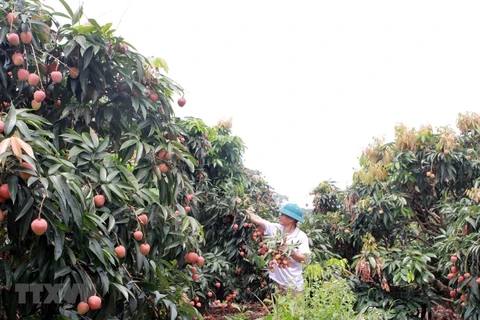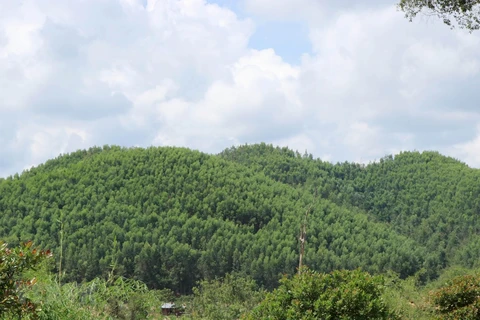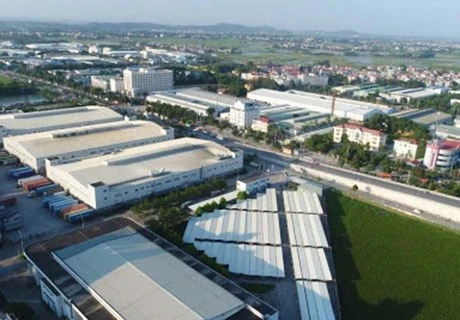 A view of Bac Giang city, the capital of northern Bac Giang province from above. (Photo: bacgiang.gov.vn)
A view of Bac Giang city, the capital of northern Bac Giang province from above. (Photo: bacgiang.gov.vn)Hanoi (VNA) - Bac Giang city, the capital of northern Bac Giang province, will take measures to turn itself into a first-tier city with smart and green development, according to Chairman of the municipal People’s Committee Vu Tri Hai.
The city will review its urban planning to make necessary amendments that support the development of a smart and green city and ensure the harmonisation of all plannings. It will develop the compact city model in new urban areas which see robust growth of urbanisation and population. In such areas, the city will limit the number of semi-detached houses and encourage the construction of high-rise buildings while setting tighter control of land bank for the long-term use and allocating land for construction of transport projects, green areas and other public works.
Authorities at both provincial and city levels will be required to strengthen the supervision and management of smart and green architecture through strict verification and approval of housing projects and house designs.
At first, Bac Giang city will focus on expanding green areas and prioritising projects which use advanced and friendly-environmentally technologies and are energy efficient. The city will lure investment to local waste-to-energy projects; build and upgrade wastewater collection and treatment systems to prevent partial flooding. It also plans to renovate old streets, build more parks and lakes, and develop a proper network of waste transfer stations that are friendly to the environment.
The city aims to allocate resources and attract private investment to implement a project on managing and developing trees in urban areas over the next five years.
Bac Giang city is implementing the smart city development project for 2020 – 2025 with an initial focus placed on building e-government which is core to develop a smart city. Under the project, the city will digitise database on land and construction planning and licencing and promote use of QR Codes for information to facilitate State management and better serve citizens and enterprises. It also plans to install a network of traffic and security cameras and provide free wifi at selected areas in the city.
Additionally, Bac Giang city wants to cooperate with prestigious and financially capable investors to develop green and smart buildings and urban areas as well as encourages local residents to build a smart and green city through specific and practical acts like protecting and caring trees, classifying domestic waste and disposing trash properly, installing home security cameras, and lodging public administration inquiries and receiving results online.
The city has completed 60 percent of subdivision planning so far and the percentage is expected to reach 100 percent in 2021, raising its detailed planning to 50 percent.
It has focused on mobilise resources for upgrading technical and social infrastructure, particularly in the areas of transport, electricity, water supply and drainage, and the environment.
Since 2015, the city has built five new bridges and 64 km of new urban roads, asphalted all 3 metre wide or more alley roads, and upgraded close to 500 classrooms. It has developed technical infrastructure in 60 urban and residential areas covering 460ha; built two condo buildings with a total of 2,340 apartments; and renovated local squares, parks and public green areas.
The city has applied information technology in building e-government and accelerating public administrative reforms, contributing to boosting the local economic growth. It has created a Facebook fanpage which now has more than 11,000 subscribers to collect feedback and complaints about problems in urban infrastructure, urban order, and environmental sanitation while promoting the use of QR Codes in popularising key contents of draft documents submitted to the city’s Party Congress./.























